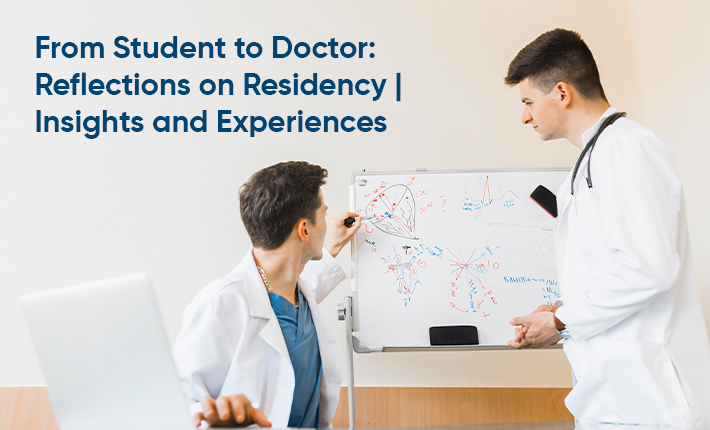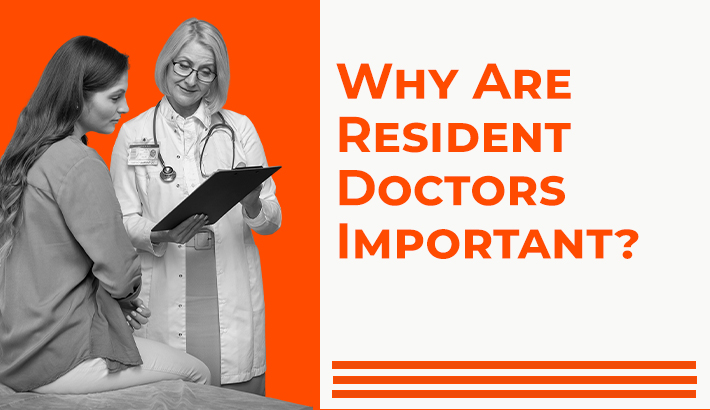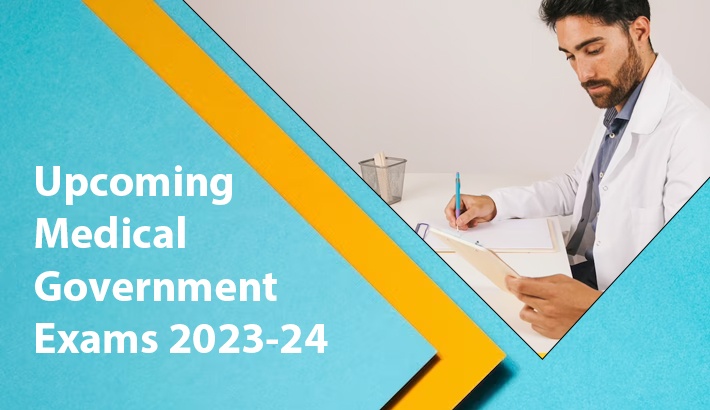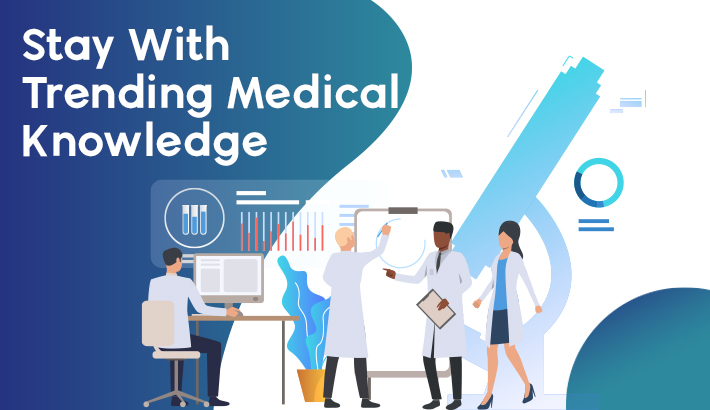Becoming a doctor is a lifelong journey that begins with the decision to enter medical school. For aspiring physicians, the road from being a student to a full-fledged doctor is paved with challenges, sacrifices, and immense personal growth. In this article, we will explore the transformative experience of transitioning from a student to a doctor through the lens of medical residency.
The Journey Begins: Entering Medical School
The journey to becoming a doctor commences with the arduous process of gaining admission into medical school. This phase involves rigorous academic preparation, including science courses, entrance exams, and interviews. Once accepted, medical students embark on an exciting yet demanding path towards fulfilling their dreams of healing and helping others.
The Rigors of Medical School
Balancing Academic and Personal Life
Medical school is renowned for its demanding curriculum, requiring students to master an extensive body of knowledge in a relatively short period. Striking a balance between academic pursuits and personal life becomes an ongoing challenge. Effective time management, organization, and self-care practices play pivotal roles in maintaining a healthy and well-rounded lifestyle.
Developing Clinical Skills
As medical students progress, they are introduced to the world of clinical rotations. These immersive experiences provide opportunities to apply theoretical knowledge to real-life patient care scenarios. Under the guidance of experienced physicians, students learn the art of history-taking, physical examinations, and treatment planning. These hands-on encounters shape their clinical acumen and forge the foundation of their medical careers.
Building a Strong Foundation
Medical school acts as a crucible for building a strong foundation of medical knowledge and critical thinking skills. Through lectures, case studies, and research projects, students develop a comprehensive understanding of anatomy, physiology, pharmacology, and pathology. This broad knowledge base becomes the bedrock upon which further specialization and expertise are built.
Transitioning to Residency
The Match Process
After successfully completing medical school, aspiring doctors enter the residency application and matching process. This highly competitive phase involves submitting applications, attending interviews, and creating a rank order list of preferred programs. The National Resident Matching Program (NRMP) facilitates the pairing of applicants with residency programs based on their mutual preferences.
Adjusting to a New Environment
Once matched, medical graduates transition from the classroom to the hospital setting as residents. This shift brings forth a host of changes, including adapting to a new city, hospital hierarchy, and team dynamics. Navigating this transition requires resilience, flexibility, and a willingness to embrace new challenges.
Increased Responsibility
Residency signifies a significant increase in responsibility and autonomy. As residents, doctors-in-training are entrusted with more decision-making power and patient care responsibilities. They work closely with attending physicians, honing their clinical skills and learning to make critical medical decisions while upholding the highest standards of patient safety and care.
The Challenges and Rewards of Residency
Long Hours and Sleep Deprivation
Residency is notorious for its demanding work hours, with residents often working long shifts that extend well beyond regular office hours. This grueling schedule can lead to sleep deprivation and physical exhaustion. However, it is during these moments that residents learn to persevere, push their limits, and adapt to high-stress situations—a crucial aspect of their professional growth.
Mentoring and Learning from Senior Physicians
Residency offers the unique opportunity to learn directly from experienced physicians and specialists. Senior doctors serve as mentors, guiding residents in refining their clinical skills, diagnostic acumen, and treatment strategies. This mentorship fosters a supportive learning environment, allowing residents to gain invaluable insights from those who have traversed the same path.
Patient Care and Impact
One of the most fulfilling aspects of residency is the ability to directly impact patient lives. Residents engage in comprehensive patient care, from diagnosis to treatment and follow-up. They form deep connections with patients and their families, witnessing the transformative power of medicine firsthand. The sense of fulfillment derived from helping others reinforces their passion for their chosen profession.
The Importance of Self-Care
Prioritizing Physical and Mental Well-being
Amid the rigors of residency, it becomes crucial for doctors to prioritize their physical and mental well-being. Regular exercise, healthy eating, and sufficient rest help maintain optimal health. Additionally, seeking support from peers, mentors, and mental health professionals can mitigate the emotional toll that comes with the demands of the profession.
Managing Stress and Burnout
Residency can be emotionally and mentally challenging, often leading to stress and burnout. Recognizing the signs of burnout and implementing strategies to cope with stress are essential. Engaging in hobbies, practicing mindfulness, and fostering a healthy work-life balance can help residents navigate the demanding nature of their training while safeguarding their well-being.
Lessons Learned and Personal Growth
Developing Professionalism and Communication Skills
Residency molds physicians into professionals who excel not only in clinical knowledge but also in effective communication. Residents learn to interact with patients, colleagues, and interdisciplinary teams with compassion, clarity, and empathy. These interpersonal skills enhance patient care, facilitate teamwork, and establish trust—a vital component of the doctor-patient relationship.
Cultivating Empathy and Compassion
Residency instills a deep sense of empathy and compassion within doctors. Through exposure to a diverse range of patient experiences, residents witness the vulnerability and strength of the human spirit. This empathy fuels their dedication to providing holistic care, supporting patients beyond their medical conditions, and striving for the best possible outcomes.
Continuous Learning and Growth
The journey from student to doctor is an ongoing process of learning and growth. Throughout residency, physicians continually expand their knowledge base, stay updated with the latest medical advancements, and refine their skills. This dedication to lifelong learning ensures that doctors remain at the forefront of medical practice and continue to provide the highest quality of care to their patients.
Conclusion
The transformation from a student to a doctor is a remarkable journey filled with challenges, growth, and profound rewards. Medical school and residency shape individuals into highly skilled professionals who dedicate their lives to the service of others. Through resilience, compassion, and a commitment to continuous learning, doctors emerge from their training prepared to make a lasting impact on the lives of their patients and the field of medicine as a whole.
FAQs
Q1. How long is the residency program?
A. Residency programs typically range from three to seven years, depending on the chosen medical specialty.
Q2. What is the typical schedule like during residency?
A. Residency schedules vary depending on the specialty and program. However, residents can expect to work long shifts, including overnight and weekend hours, as patient care is a 24/7 commitment.
Q3. How do residents balance work and personal life?
A. Balancing work and personal life during residency can be challenging. However, residents are encouraged to prioritize self-care, set boundaries, and engage in activities that promote their well-being outside of work.
Q4. What support systems are available for residents?
A. Residency programs provide various support systems, including mentorship programs, counseling services, and resources for addressing burnout and mental health issues. Additionally, resident support networks and peer groups offer invaluable camaraderie and support.
Q5. What happens after completing residency?
A. Upon completing residency, doctors have the opportunity to pursue further specialization through fellowship programs or enter practice independently. Many doctors also continue their academic pursuits, engaging in research, teaching, or administrative roles within the medical field.




